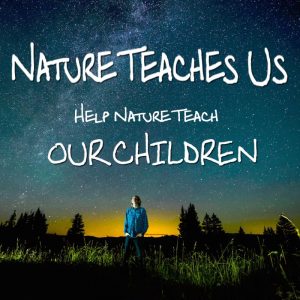 Nothing puts things into perspective like spending time in nature. Life’s problems seem so small when we’re standing beside the vastness of the ocean. And who can deny the sense of wonder and curiosity we experience when gazing up at a starry sky?
Nothing puts things into perspective like spending time in nature. Life’s problems seem so small when we’re standing beside the vastness of the ocean. And who can deny the sense of wonder and curiosity we experience when gazing up at a starry sky?
Nature as a Teaching Tool for Your Children
Nature is full of splendor – but it also contains possibilities to learn about real world applications of science. In fact, you can learn a lot about scientific facts from observing and interacting with the natural world. If you have children, you can use nature as an important teaching tool. What better way to get your children off the screens and spending some quality time outside?
Here are some of our favorite lessons we can learn (and teach our children) from nature:
Gardening
If you’ve been having trouble convincing your children to eat their veggies, this is a creative option that just might do the trick. Many parents (and schools) are teaching children how to grow their own fruits and vegetables in a garden.
According to Cleveland Clinic, children may be more likely to eat vegetables that they have helped plant, grow, tend to, and harvest because they already view those foods as “theirs.” Best of all, they’ll learn a variety of lessons about biology, nature sciences, healthy food choices, and – perhaps best of all – compassionate caring for other living things.
Nature Sciences
There are almost endless possibilities for teaching students about science while observing the natural world. For example, you might start by discussing ecosystems or the food chain. You could also give them plenty of biology lessons by discussing the insects, plants, birds, and other small creatures they might encounter.
You can also teach them valuable lessons about sustainability, how we as humans are impacting our planet, and what we can do to help. By immersing yourselves in nature, you can help your child understand the importance of protecting our planet.
Behavioral Science
If you’ve ever heard the old saying that time in nature is good for you, there’s more truth than you might have realized. As it turns out, there is some scientific evidence to support this fact. By spending time in nature, you can teach your children how nature helps our emotions and our minds. A walk through the forest could be an important opportunity to discuss behavior and psychology (and their connection to the natural world) with your children. Best of all, this lesson will be beneficial for you as well as your child.
Astronomy
An astronomy lesson using the night sky is a fun outdoor activity for children (and adults) of all ages. Of course, a telescope will provide the clearest view – but if you’re camping in an area that has very little light pollution, you may not even need one.
STEAM Lessons
You’ve probably heard of STEM (Science, Technology, Engineering, and Mathematics) lessons. In recent years, many educators have become proponents of adding art into the mix, creating something called STEAM lessons.
If you want to get creative while teaching children about science and art at the same time, you might consider bringing some art supplies out into nature. For instance, your child could paint the landscape while you teach him or her about Monet’s beautiful paintings of nature.
Check the Price of this Child’s Art set at Amazon
Remember all of these tips when you’re on your next camping trip with your family and your children are staring up at the night sky. Nature can be one of our greatest teachers in life – and these are important lessons to guide your children as they grow. Best of all, the lessons above are fun for the whole family – children and adults alike.
Image adapted from Photo courtesy of Stock Snap by Hunter Bryant
 Guest Author: Jamie Strand (SciCamps.org)
Guest Author: Jamie Strand (SciCamps.org)
Jamie Strand is an unashamed nerd. He teaches community college and loves spending time with his two daughters. He wants to share his love of science and math with kids today and that’s why he and a friend got together to create Scicamps.org.

